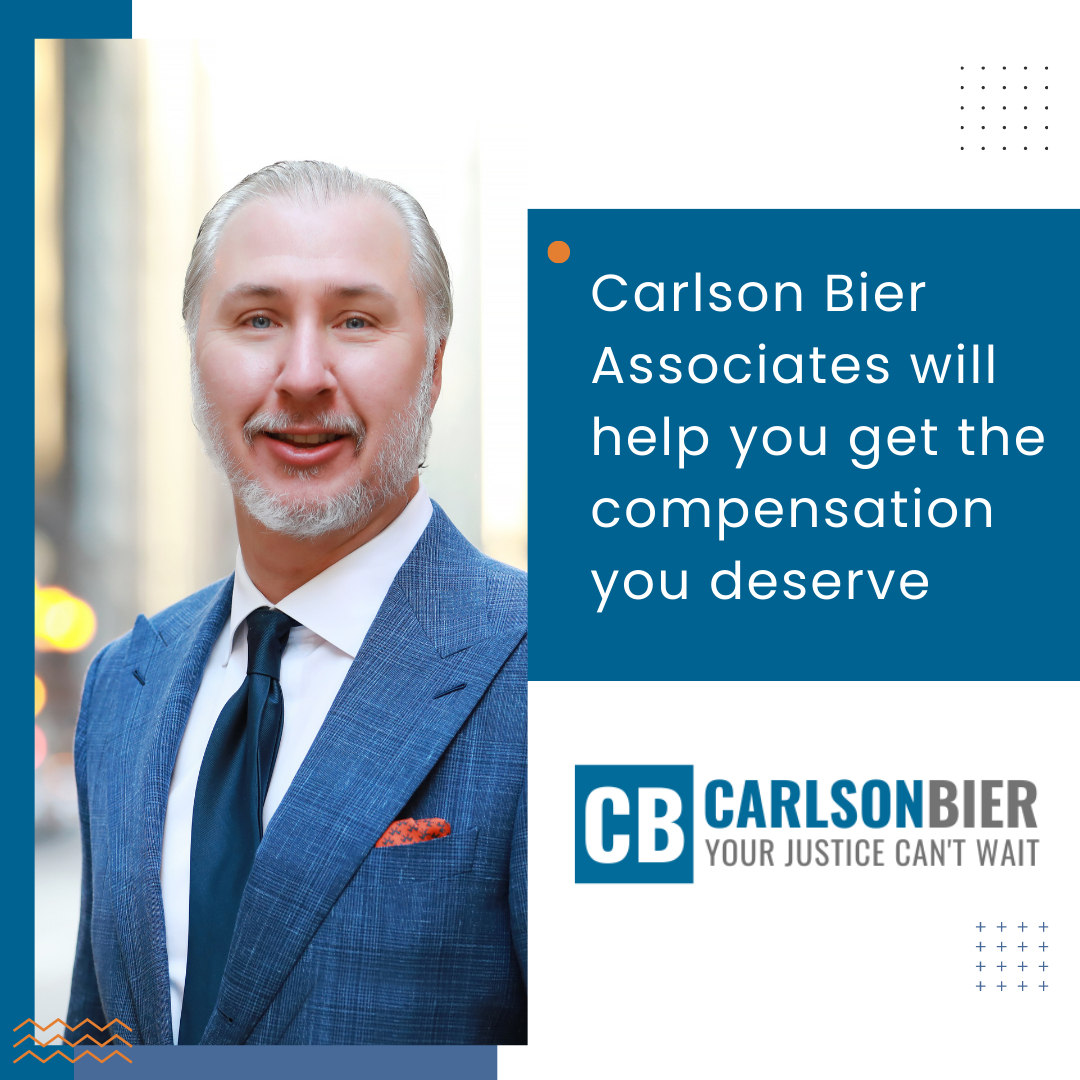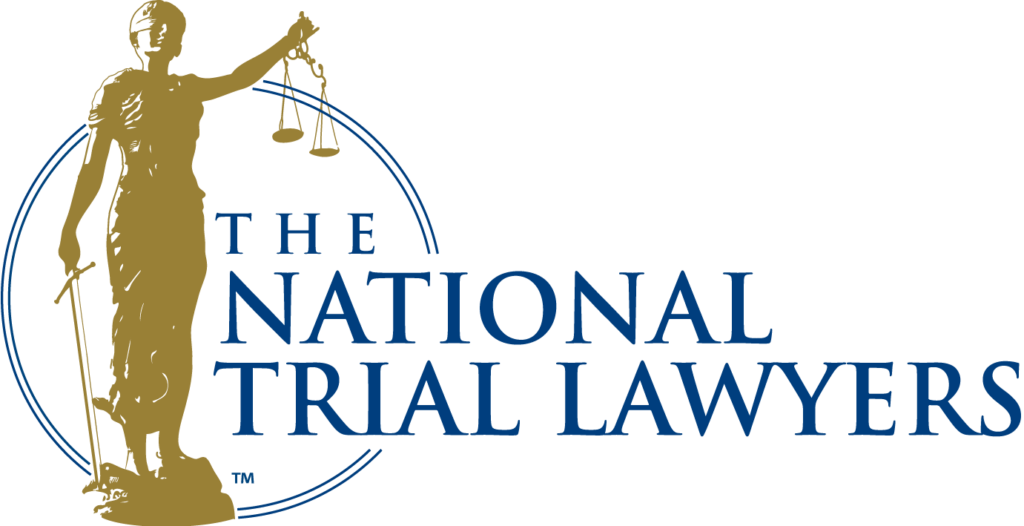Your Justice Can’t Wait
Let Carlson Bier Fight For you
Over $50 Million in Recoveries

Your Success Is Our Success
Personal Injury Law Firm in Chicago, Illinois
If you or a loved one has suffered a serious personal injury in Chicago or anywhere in Illinois, you need immediate action. It is urgent that action is taken to prevent any further physical, emotional, or financial harm. It is essential that fair compensation is given and that both your present and future are secure.

Carlson Bier Associates
Your justice can’t wait and at Carlson Bier Associates, LLC, we invest the time and resources needed to pursue justice for you. We do what is right for our clients by making ourselves available, by analyzing and investigating every detail of your case, and by creating a plan of action that focuses on noteworthy results.
With decades of experience, our personal injury lawyers have an in-depth understanding of insurance coverage and personal injury law that is unmatched. This has resulted in numerous successful settlements and judgements for our clients. It has also resulted in our lawyers and our personal injury law firm in setting legal precedents that are still adhered to today.
When you or a loved one need assistance with a personal injury claim, our firm is ready to set you up for success now and in the future. Contact us today. Your justice cannot wait.
Chicago Personal Injury Lawyers
Our Chicago personal injury attorneys have successfully negotiated and litigated numerous serious personal injury cases
Bicycle Accidents
Every turn of your pedals should feel safe and empowering not risky. At Carlson Bier, we stand firmly with cyclists harmed by negligence, guiding you toward the justice and compensation you deserve. Because when your ride is interrupted, your rights shouldn’t be.
Burn Injuries
Burn impairment is one of the costliest and terrible wounds to treat. If you or a close relative has received electrical burns, radiation burns, or other sorts of burns due to somebody else’s disregard. In that case, Carlson Bier's burn injury lawyer can help to get compensation.
Medical Malpractice
Medical malpractice can take many forms, some not life-threatening, but many capable of leaving a lasting impact. Hiring a medical malpractice attorney helps protect your rights and ensures that those responsible are held fully accountable for the harm they’ve caused.
Products Liability
A dangerous or defective product can cause harm; hence, you deserve strong protection for your rights. A products liability lawyer can help you pursue the justice and compensation you’re entitled to. Contact us to recover any financial restitution for your injuries or losses.
Nursing Home | Elder Abuse
Growing older should come with dignity, not mistreatment. We investigate, gather evidence, and hold those responsible accountable. At Carlson Bier, we stand up for seniors, making sure that in care facilities, elders are protected from abuse or neglect.
Slip And Fall Accidents
Slip-and-fall or trip-and-fall accidents can happen in many ways.t. It may sound minor, but remember that your injuries may last a long time, potentially requiring long-term medical assistance.If you or a loved one were hurt in a premises accident, contact Carlson Bier immediately.
Birth Injuries
Every newborn deserves a safe and gentle start. When medical mistakes cause lifelong consequences, our personal injury law firm, stand beside families, fighting for the justice they’re owed. Because your baby’s first chapter should be filled with hope and not hardship.
Car Accidents
If you or someone you love was involved in a car accident, you need to move quickly. Carlson Bier car accident lawyers will do anything and everything in their power to get the maximum financial recovery. Get in touch with a personal injury law firm in Chicago.
Motorcycle Accidents
Carlson Bier, a leading personal injury law firm in Chicago, understands how to navigate every aspect of a motorcycle accident claim. We build a compelling case so that the insurance company fully understands and is left with no choice but to pay full compensation.
Trucking Accident
A collision with a truck can dismantle a life in seconds. Carlson Bier's commitment to aggressively advocate for the victim's cause, securing non-negotiable compensation that covers medical care, lost wages, and future security. We don't settle for less!
Construction Site Accidents
When you or a loved one suffers a worksite injury in Chicago, it’s crucial to act quickly. The statute of limitations limits the time you have to take legal action. You may be entitled to compensation for your injuries and suffering, but waiting too long could mean losing your chance for justice.
Brain Injuries
When a personal injury disrupts the clarity of mind, Carlson Bier is here to light the way forward. We stand fiercely with those affected by brain injuries, fighting for the justice, care, and support you deserve. Contact us to reclaim your tomorrow with strength and dignity.
Dog Bite Injuries
Bites and attacks from canines can occur to anyone. Dog bite-related cases can be extremely sensitive. Our lawyers at Carlson Bier understand this and will be on your side, ready to stand with you. They will do their best to help you fight for and protect your rights.
Pedestrian Accidents
If you’re looking for a pedestrian accident lawyer, contact Carlson Bier. Our personal injury law firm in Chicago will do everything necessary to support innocent pedestrians, protect their rights, and pursue compensation from the negligent driver.
Wrongful Death
At our personal injury law firm in Chicago, we understand that losing a loved one is one of life’s hardest challenges. We will do everything to secure the justice your family deserves. No one should face this loss without support or the chance to hold those responsible accountable.
Spinal Cord Injury | Paralysis
If you or a loved one has suffered a spinal injury or traumatic brain injury, contact our law firm for a free initial consultation. We are here to help you pursue the compensation you deserve and support you through the challenges that follow such life-altering injuries.








